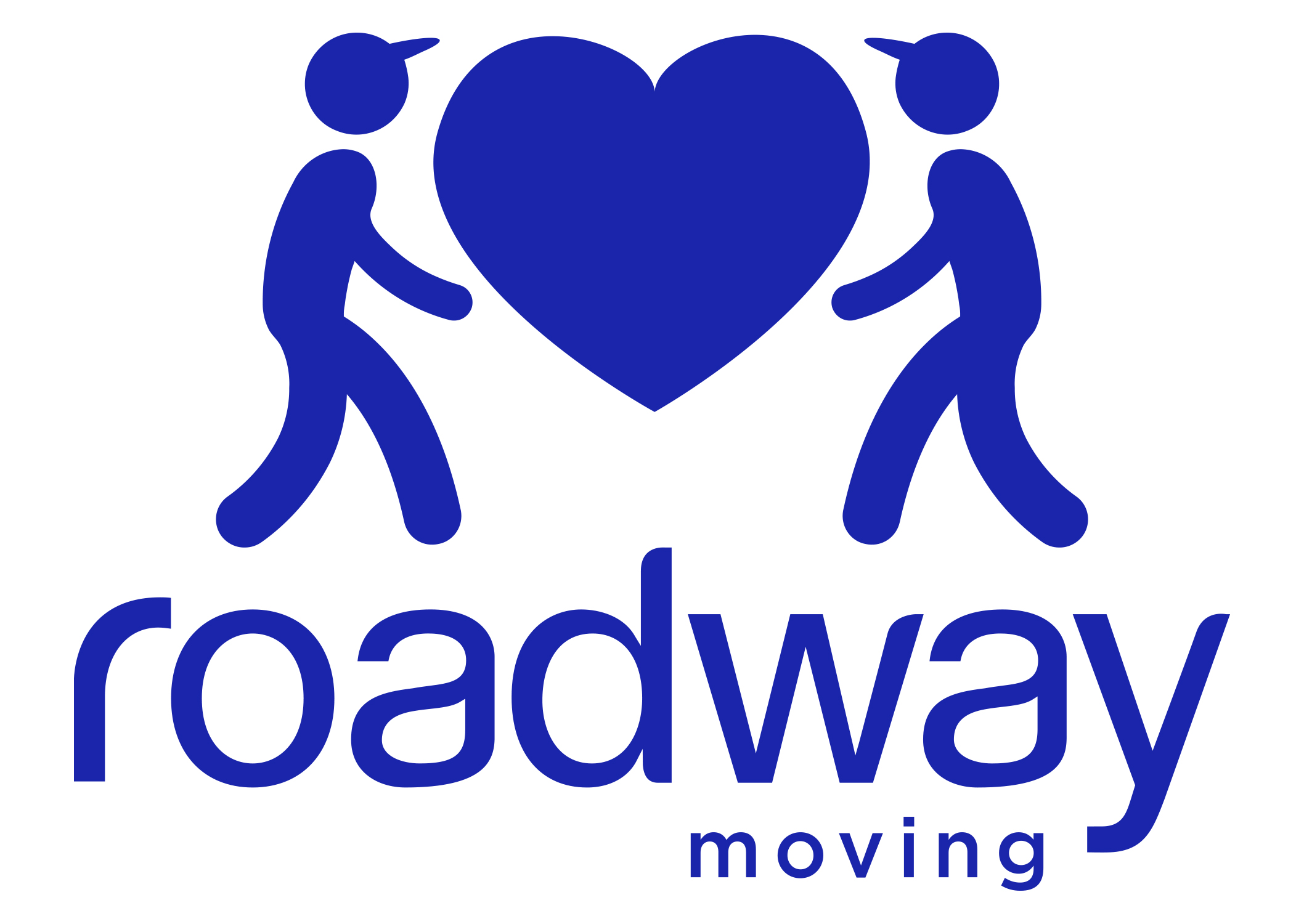The best local movers for St. George to Charleston moves
It’s not always easy to find a reliable local moving company in St. George that also handles long-distance moves to Charleston. Luckily, we’ve done the research for you. We evaluated six local movers in St. George who offer long-distance services, looking at cost, service quality, and customer reviews.
Below are the top local moving companies for long-distance moves from St. George to Charleston.
- TWO MEN AND A TRUCK: 4.48 out of 5 stars
- Legacy Moving: 4.28 out of 5 stars
- Dixie Moving & Storage: 4.12 out of 5 stars
- Simple Moves: 4.02 out of 5 stars
- Big Ben’s Moving And Storage LLC: 4.0 out of 5 stars
Company Info
State license #: 3650905
Years in Business: 9
DOT #: 2527384
Alternate Names: Two Men and a Truck Salt Lake City , Beehive Moving, LLC , Black Wolf Moving Utah, LLC
Services Offered
- Local moves
- Interstate moves
- Packing
- Unpacking
- Pianos
- Storage
- Safes
- Pay by credit card
Company Info
State license #: 3155499
DOT #: 3155499
Services Offered
- Local moves
- Interstate moves
- International moves
- Packing
- Unpacking
- Offices
- Pianos
- Pool Tables
- Art
- Crating
- Storage
- Safes
- Pay by credit card
Company Info
State license #: 1828474
DOT #: 1828474
Services Offered
- Local moves
- Interstate moves
- International moves
- Packing
- Unpacking
- Offices
- Pianos
- Art
- Antiques
- Crating
- Crane vans
- Shipment tracking
- Full-valuation coverage
- Storage
- Fragile-only packing
- Safes
- Pay by money order
- Pay by cash
- Pay by credit card
- Deposit Required
Company Info
Services Offered
- Local moves
- Packing
- Unpacking
- Offices
- Pianos
- Hot Tubs
- Pool Tables
- Art
- Pay by credit card
Company Info
State license #: 3721445
DOT #: 3721445
Services Offered
- Local moves
- Interstate moves
- Packing
- Unpacking
- Offices
- Pianos
- Hot Tubs
- Pool Tables
- Art
- Antiques
- Crating
- Full-valuation coverage
- Storage
- Fragile-only packing
- Safes
- Pay by credit card
- Deposit Required
How much does it cost to move from St. George to Charleston?
The average hourly rate for movers in Utah is $129. Here are some general cost estimates for a full-service moving company, a moving container, or a rental truck:
| Move size | Moving company | Moving container | Rental truck |
|---|---|---|---|
| Studio / 1 bedroom | $1,238 – $4,864 | $1,140 – $2,766 | $1,123 – $2,145 |
| 2 – 3 bedrooms | $3,119 – $7,078 | $1,873 – $4,213 | $1,168 – $2,402 |
| 4+ bedrooms | $5,768 – $10,109 | $2,593 – $5,196 | $1,414 – $3,157 |
Cost to hire movers from St. George to Charleston
Hiring movers for a studio apartment or one-bedroom home from St. George to Charleston will cost between $1,238 and $4,864. The cost to move a two- to three-bedroom home from St. George to St. George will range from $3,119 to $7,078, and a large move from St. George to Charleston will cost from $5,768 to $10,109.
Cost of moving containers from St. George to Charleston
If you’re moving from St. George to Charleston, expect to pay between $1,140 and $2,766 for a small load. For a home with two or three bedrooms, prices typically range from $1,873 up to $4,213. Larger moves of four bedrooms or more can run between $2,593 and $5,196. Check out our guide on PODS cost for more details.
Check out the most affordable moving container companies for your move from Utah.
Cost of moving truck rentals from St. George to Charleston
Renting a moving truck from St. George to Charleston is usually your cheapest option, but keep in mind you’ll be handling all the loading, unloading, and driving yourself.
If you’re moving a studio or one-bedroom apartment with a rental truck, expect to spend between $1,123 and $2,145. For two to three bedrooms, rates typically fall between $1,168 and $2,402. Relocating a four-bedroom (or bigger) home? You’re likely looking at anywhere from $1,414 up to $3,157 for your rental truck.
These quotes include estimated fuel costs.
Key factors that influence moving costs from St. George to Charleston
The cost of St. George movers will depend on:
- The size of your home: Smaller moves (like one-bedrooms) cost less, sometimes just $2,311, while larger moves (four-bedrooms) can hit $10,253.
- Time of year: Summer is peak moving season in St. George, which means higher prices.
- The type of mover you choose: Renting a truck ($1,123–$2,825) saves money but adds work compared to hiring pros.
What to know before moving from St. George to Charleston
Many movers find Charleston easier on the wallet than St. George – roughly 28% less for singles and 16% less for families.
Monthly basics average $1,549 for one person in Charleston versus $2,152 in St. George. For a family of four, it’s $3,862 compared with $4,577.
See the cost breakdown below to pinpoint where the savings add up:
| St. George | Charleston | |
|---|---|---|
| Average 1 BR rent | $933 | |
| Average 3 BR rent | $1,800 | |
| Average home value | $501,557 | $153,672 |
| Average income (per capita) | $58,508 | $59,354 |
| Cost of living (single) | $2,152 | $1,549 |
| Cost of living (family of four) | $4,577 | $3,862 |
| Unemployment rate | 2.9% | 6.2% |
| Sales tax | 6.75% | 7.0% |
| State income tax | 4.95% | 6.5% |
- If you’re heading to Charleston from St. George, you’ll find that rent is roughly 51% cheaper, potentially boosting your monthly savings.
- Your budget can breathe easier with home prices being close to 69% less in Charleston than in St. George.
- Fortunately, the average income in Charleston and St. George is quite close, within a 5% range, so financial stability is likely.
- Get ready to save some money on recurring expenses like food, gas, and utility bills in Charleston. On average, the cost of living for a single person there is 28% lower than in St. George.
- Choosing to move to Charleston can significantly lower your family’s regular expenses, such as utilities, transport, and groceries. The cost of living for a family of four is 16% less than in St. George.
- In Charleston, the unemployment rate is approximately 114% higher than in St. George, indicating a larger group of job seekers. This can lead to increased competition for positions.
- Sales taxes show little difference between Charleston and St. George (around 5%), making it one less financial concern for your move.
- Income taxes are 31% higher in West Virginia than in Utah, meaning that a larger fraction of your income will be spent on state taxes, potentially reducing your savings.
Here’s a closer snapshot of how common everyday costs and monthly bills compare between St. George and Charleston:
| Living Expense | St. George | Charleston |
|---|---|---|
| Basic utilities | $128.95 | |
| Cell phone plan | $45.33 | |
| Dozen eggs | $3.26 | |
| Loaf of bread | $2.20 | |
| Fast-food/casual eatery (one meal) | $15.00 | |
| Dinner for 2 (mid-range restaurant) | $50.00 | |
| Gym membership | $31.00 |
How life is different in St. George vs. Charleston
| St. George | Charleston | |
|---|---|---|
| Population | 180,279 | 48,018 |
| Transportation score | 2 | 2 |
| Walkability score | 27 | 33 |
| Bike friendliness score | 45 | 28 |
| Crime index | 29.02 | 53.94 |
| Safety index | 70.98 | 46.06 |
| Air quality | Good | Good |
- Charleston’s population is about 73% less than St. George.
- Charleston’s public transportation score is within about 5% of St. George, making them very similar.
- Charleston is more walkable than St. George with a score of 33 out of 100 vs St. George’s 27 out of 100.
- Charleston has a bike-friendliness score of 28 out of 100, which means it isn’t as accessible or safe for cyclists as St. George, which has a score of 45.
- Charleston’s crime rate is higher than St. George with a score of 53.94 compared to St. George’s 29.02. This means that Charleston neighborhoods are safer than 53.94% of all U.S. neighborhoods, and St. George neighborhoods are safer than 29.02%.
- Charleston is considered to be less safe than St. George with a score of 46.06 vs St. George’s 70.98.
- Air quality in Charleston is Good, and in St. George it’s Good.
Other things to consider for your St. George to Charleston move
- HOA rules: Be sure to review your community or HOA guidelines before moving day to avoid any surprises or delays.
- Elevator reservation: Make sure to arrange elevator access in advance if your building requires reservations for moving.
- Truck parking permits: To avoid fines or delays, check whether a parking permit is needed for your moving truck.
- State licensing: In the Mountaineer State, the state’s Public Service Commission oversees local and intrastate movers. The commission strives to support and promote the interests of both businesses and consumers, and those interested in hiring an in-state mover can browse the Commission’s Regulated Motor Carrier Database to verify that they’re reputable businesses in good standing. Always verify licensing details before committing to a mover.
- State regulator: You can verify a West Virginia moving license and its status through the state’s public utilities commission.
- Moving Permits: West Virginia doesn’t require moving permits, but it’s still a good idea to check local parking rules before your move-in day.
- Change of address: To avoid missing any mail, we recommend submitting your USPS change of address form at least a week before your move. You can choose your official move date to make sure everything gets forwarded properly to Charleston. Start the process here.
- Moving company insurance: Every state sets its own rules for what insurance moving companies need to maintain. When relocating in West Virginia, prioritize movers’ insurance for comprehensive coverage. Many movers provide Released Value Protection at no additional cost, covering items at 60 cents per pound. Elevate your protection by exploring Full Value Protection options with the moving company or considering tailored plans from third-party insurance providers. Understand coverage limits, potential extra costs, and read reviews to make an informed decision on your West Virginia state moving insurance, ensuring a secure and stress-free relocation experience.
- Moving checklist: Follow our moving checklist to keep your move organized and stress-free.
Where to live in Charleston
Now that you’ve decided to make the move to Charlie West, these are the best neighborhoods to move to in Charleston.
Best neighborhoods for singles
- Downtown
- East End
- West Side
- Kanawha City
- City Center
Best neighborhoods for families
- South Hills
- Edgewood
- Kanawha City
- Fort Hill
- Loudon Heights
Things to do in Charleston
Once you’re settled into your new home in West Virginia, it’s time to get out and discover what Charleston has to offer. No matter your interests, there’s something for everyone here:
- Arts and culture: You’ll find museums and cultural hubs throughout Charleston, such as the Clay Center, West Virginia State Museum, Avampato Discovery Museum, and The Art Emporium.
- Outdoor recreation: The city’s Haddad Riverfront Park, Wallace Hartman Nature Preserve, and Cato Park — and more — offering great opportunities to hike, bike, or relax in nature.
- Sports: Sports fans can join the excitement by supporting local favorites at an Charleston Golden Eagles (Mountain East) game.
FAQ
When is the best time to move from St. George to Charleston?
The best time to move from St. George to Charleston is during the spring or fall. These seasons offer milder weather and avoid higher moving costs during the peak moving season in St. George.
When is the cheapest time to move from St. George to Charleston?
Since spring and fall are the most popular times to move from St. George to Charleston, moving in the winter could help you save money. Check out our guide on moving discounts for more tips.
How long does a move from St. George to Charleston take?
Moving from St. George, UT to Charleston, covers 1,980 miles and usually takes five to 16 days. Need to move faster? Some St. George movers offer expedited options. If you’re not ready to receive your items, look into storage solutions in Charleston.
Who can move pianos or antiques in St. George?
Specialty items need extra care and the right equipment. 6 movers in St. George advertise piano moving expertise. 3 movers in St. George provide antique moving services. State totals show 26 piano movers and 18 antique movers, with nationwide availability at 2,299 and 1,464.
Book early if you need these services — demand can outpace supply during busy moving seasons.
Helpful moving resources
St. George moving services
Popular Utah routes
Not what you were looking for?
Check out other categories that can help you find the information you need!
























